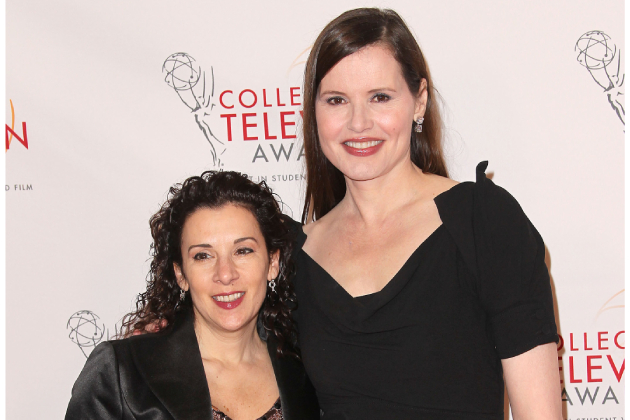Call it 2020 vision.
As we do when a year comes to a close, Realscreen is offering a look back at the major stories impacting the unscripted and non-fiction content industry over the course of the past 12 months. This year, of course, offered more than its share of unprecedented challenges. Still, as you’ll see in these recaps, the industry met them with innovation and dedication, and continues to do so as 2021 approaches. For our second look back at 2020, we examine how the television industry is embracing equity.
Inclusion and diversity have been major talking points reverberating throughout the media industry for years, but the implementation of organizational initiatives to meet racial equity frequently lacked substance or longevity.
But as the Black Lives Matter protests swept across the U.S. in the summer of 2020, with the killing of George Floyd while in police custody serving as a horrible catalyst, we began to witness a sea change in tone and urgency resonate through the business.
In October, Warner Bros. Television Group inked an exclusive, multi-year overall deal with Black Lives Matter co-founder Patrisse Cullors (pictured) to develop and produce original programming across all platforms, while YouTube bolstered its slate with new and returning non-fiction projects dedicated to amplifying Black voices.
“Now more than ever, it’s essential that we develop, support, and elevate content that is created by and for the Black community,” said Susanne Daniels, global head of original content for YouTube Originals, in a statement at the time.
The US$100 million #YouTubeBlack Voices Fund will be used over the next three years to acquire and produce YouTube Originals programming, while also directly supporting Black creators and artists to help them thrive across the platform.
For its part, the Academy of Motion Pictures Arts and Science revealed its equity and inclusion initiative, Academy Aperture 2025, which seeks to develop and implement “new representation and inclusion standards” for Oscars eligibility while also capping term limits for Academy governors.
The new initiatives also include unconscious bias training that will be mandatory for all Academy governors, branch executive committee members and Academy staff on an annual basis.
Shifts to inclusivity also began materializing in the shape of company-wide initiatives, with American conglomerates and British broadcasters alike moving toward racial equity in the workplace.
ViacomCBS made significant declarations of inclusivity via its MTV Entertainment Group (formerly Entertainment and Youth). The division – whose portfolio encompasses MTV and VH1 – pledged to fuel the creation of more unscripted studios owned and operated by Black and Indigenous creators, people of color (BIPOC) and women. To do so, it committed US$250 million over the next three years in funding, production infrastructure, services and staff to foster new creative, formats and ideas throughout the unscripted industry.
In addition, MTV Entertainment Group launched its employee-led program Culture Code, which seeks to offer best-in-class training through a multidisciplinary approach for the organization’s entire creative community.
The commercial broadcast network CBS, for its part, moved to ensure that at least half of the contestants featured in future unscripted programs would be Black, Indigenous and people of color beginning in the 2021-2022 broadcast season, among other initiatives.
AMC Networks, meanwhile, appointed human resources expert Aisha Thomas-Petit to the newly created post of chief diversity, equity and inclusion officer. She is responsible for establishing AMC’s policy to “build, develop and retain a diverse and inclusive community of talent within the company’s workforce.”
Across the pond, ViacomCBS Networks’ UK and International divisions implemented a “no diversity, no commission” mandate that requires all new international productions be made by a diverse team and launched a project to identify and promote underrepresented groups throughout the UK.
British pubcaster Channel 4, meanwhile, is planning a “Black Takeover Day” (w/t) – presented by and starring Black talent – as part of its effort to improve ethnic minority representation on- and off-screen. It has also committed to ensuring that 20% of its highest earning executives reflect London’s diverse BAME communities by 2023.
Over at the BBC, director-general Tim Davie revealed the corporation’s diversity and inclusion strategy is focused on reflecting society at large, with a modern day 50/20/12 split. “That’s 50% women and 50% men, at least 20% Black, Asian and Minority Ethnic, and at least 12% Disabled,” Davie said in September, while ensuring the pubcaster is inclusive for its LGBTQ+ employees.
Finally, commercial broadcaster ITV moved to accelerate its inclusion plans on- and off-screen by 2022. In August, the network hired Ade Rawcliffe as group director of diversity and inclusion, with responsibility for delivering the ITV Diversity Acceleration Plan, first announced in July, while working with stakeholders on its diversity ambitions and its Step Up 60 initiative, designed to provide at least 60 people with the chance to “step up and secure their first ITV senior editorial and production roles, including directing, writing or producing episodes of ITV’s new and returning drama, factual and entertainment shows.”
In front of the camera, ITV has committed to increasing the diversity of its presenters and lead actors by “backing and supporting BAME talent to land lead roles.” The broadcaster is also looking to create at least 20 opportunities in middle management and 40 new apprenticeships, while implementing mandatory race and inclusion training for all staff across the brand.



























